June 20, 2025 | 16:19 GMT +7
June 20, 2025 | 16:19 GMT +7
Hotline: 0913.378.918
June 20, 2025 | 16:19 GMT +7
Hotline: 0913.378.918
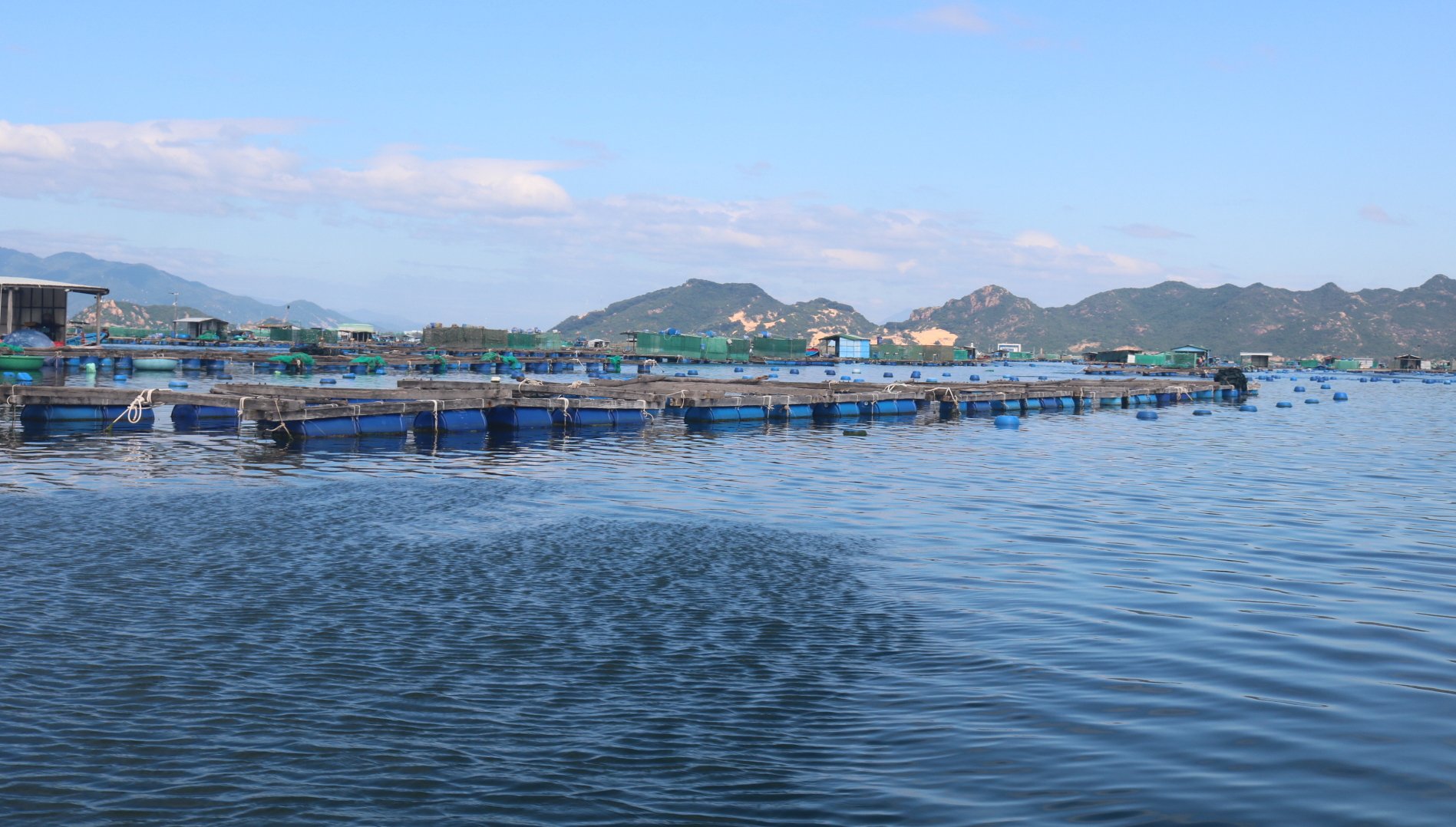
Lobster farming area in Cam Binh Island commune, Cam Ranh city (Khanh Hoa). Photo: KS.
These days, lobster farmers in Cam Binh Island commune, Cam Ranh city - the "capital" of blue lobster farming in Khanh Hoa province have been harvesting shrimp stocked from December last year and January 2023.
Recently, farmers here have been very excited because the price of lobster meat purchased is stable at around VND 1 million/kg. Therefore, when harvesting, farmers deduct costs and will have a good profit.
Like Mr. Nguyen Van Hau's household in Binh Ba Dong village, Cam Binh commune, he just harvested 12 green shrimp cages, with a total output of about 1 tonne. He sold it for VND 1 million/kg, minus interest costs of VND 500 million. The high profit is the motivation to help Mr. Hau's family, and the most profitable farmers continue to invest and re-release shrimp.
However, in recent months, the lack of supply of shrimp seed has caused many farmers to "hang in cages" after harvest, waiting for the source. Mr. Lam Anh Tuan, Chairman of Cam Binh Commune Farmers' Association, said lobsters are raised by people in the area on a rolling basis all year round, so there are harvested shrimp every month. Therefore, after gathering and cleaning the cages, farmers will buy shrimp breeds to raise.
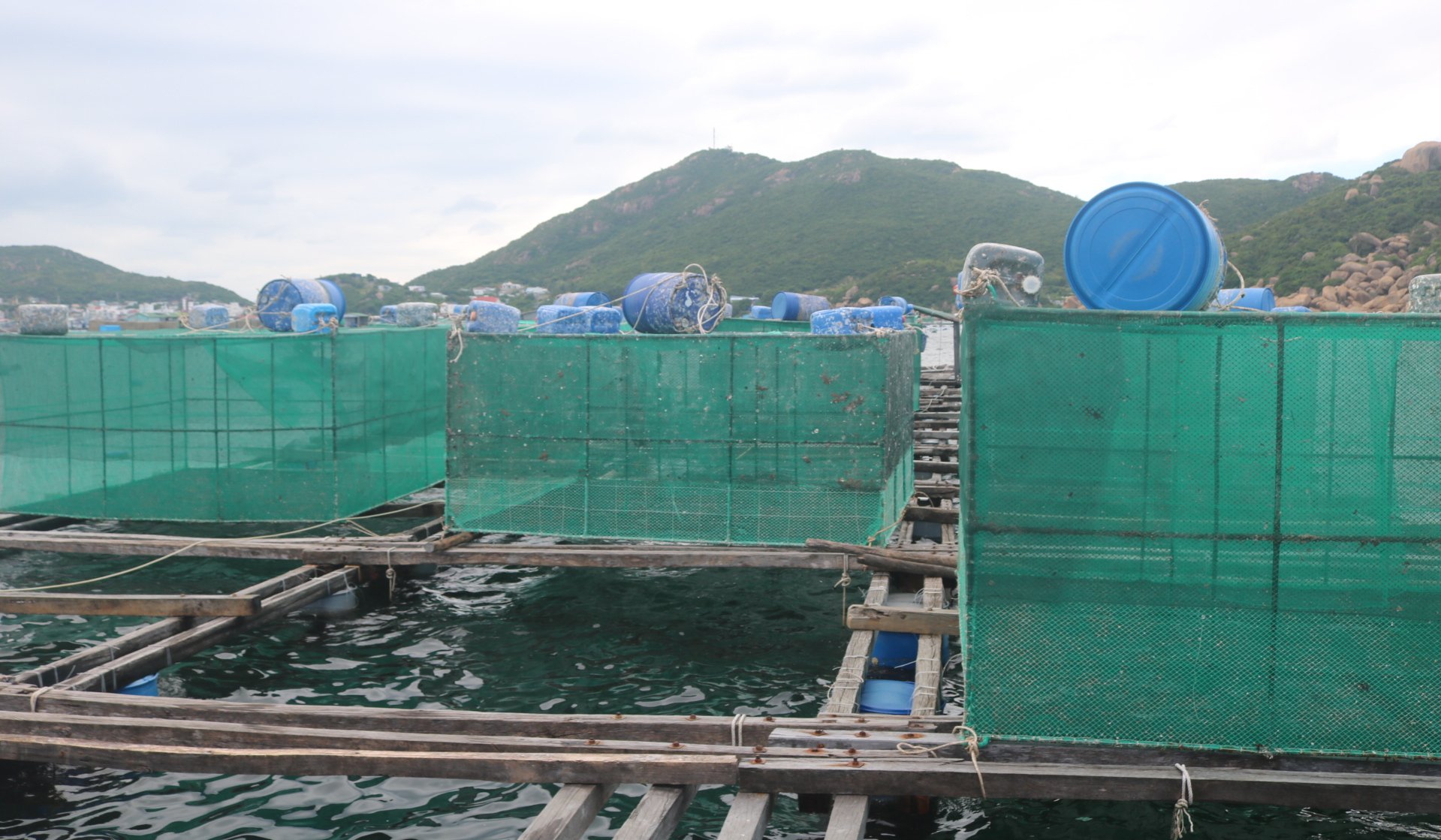
Many farmers wait for lobster breeds to be re-released. Photo: KS.
Previously, people bought seeds through local traders from import companies. However, recently, there has been a shortage of breeds, so many farmers in Cam Binh commune have yet to stock them again this time.
Mr. Tuan's family has dozens of cages waiting to buy about 20-30 thousand fish to restock. However, he is worried that the current shrimp seed source is of uncertain quality, so many farmers in the area have lost a lot of stock in the past.
Mr. Nguyen An, Chairman of Cam Binh Commune People's Committee, added that the commune has about 17,000 cages, mainly raising blue lobsters. Due to blanket farming, the demand for breeding stock in the area is very high. However, breed supply to farmers has recently been prolonged, only meeting about 50% of farming needs.
The farming area in Cam Ranh and the lobster farming area in Van Phong Bay, Van Ninh district (Khanh Hoa), also has a severe shortage of lobster seed sources.
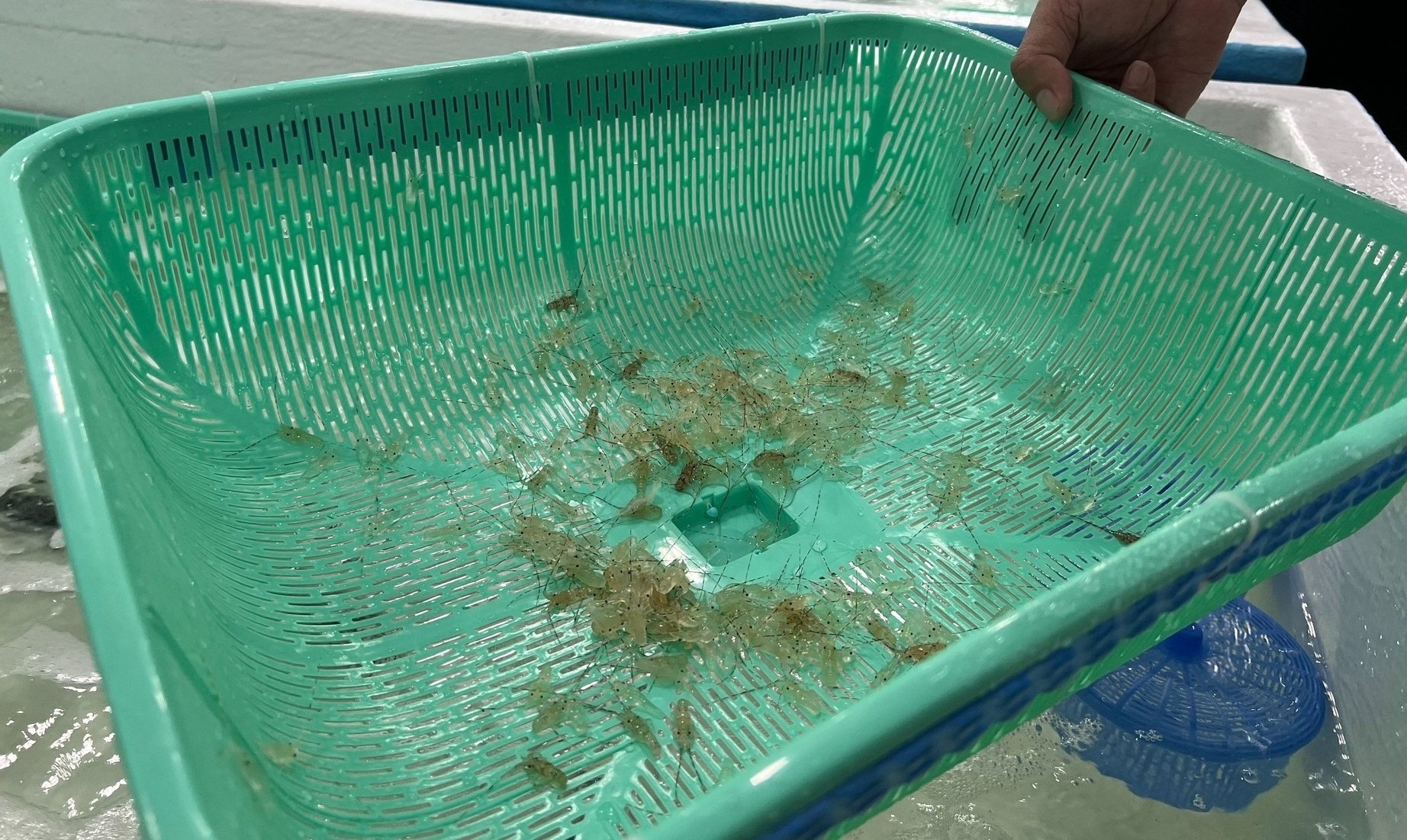
Lobster breeds are mainly imported from neighboring countries. Photo: KS.
Mr. Nguyen Thanh Sang, a lobster farmer in Van Gia town, said that for about a month now, many people have finished harvesting their lobsters, but they have yet to ask everywhere for the same. Like other households, Mr. Sang's family has about 20 cages that need 20,000 shrimp. He is also waiting for shrimp seeds to be re-released.
According to Mr. Vo Khac En, Deputy Director of the Department of Fisheries, lobster is the main farming species of the locality. The province currently has over 64,000 lobster cages, with an output of 1,300 tonnes.
Because we have yet to actively produce lobster seed, the seed source provided to farmers is mainly exploited in the wild, meeting about 15-20% of demand. The remaining 85% of shrimp seed production is imported from neighboring countries.
According to our research, the source of lobster seeds imported from other countries to Vietnam was interrupted because the lobster seeds imported by some companies in Khanh Hoa province were found to be infected with disease-causing viruses.
Recently, illegally transporting and trading lobster breeds from abroad into Vietnam via road and air has been quite common and complicated at airports for international flights (Noi Bai Airport, Tan Son Nhat) and through several localities that share a border with Cambodia. Lobster breeds illegally transported from abroad into Vietnam lead to the risk of being infected with white spot pathogens and milk disease, potentially seriously affecting the Vietnamese shrimp farming industry.
Regarding this problem, Ms. Tran Thanh Thuy, Deputy Director of Khanh Hoa Department of Animal Husbandry and Veterinary Medicine, Region IV Animal Health Department (Department of Animal Health), has issued a written notification to the Khanh Hoa Animal Health Department.
To prevent the risk of disease infection caused by illegally transporting, trading, and consuming lobster breeds from abroad into Vietnam, which has the chance of seriously affecting aquaculture development, the Ministry of Agriculture and Rural Development recommends that the People's Committees of Provinces and centrally-run cities direct local departments, branches, branches and authorities at all levels organize and synchronously deploy solutions according to the provisions of the Law on Animal Health and documents guiding examinations enforce the Law and urgently contain specific measures.
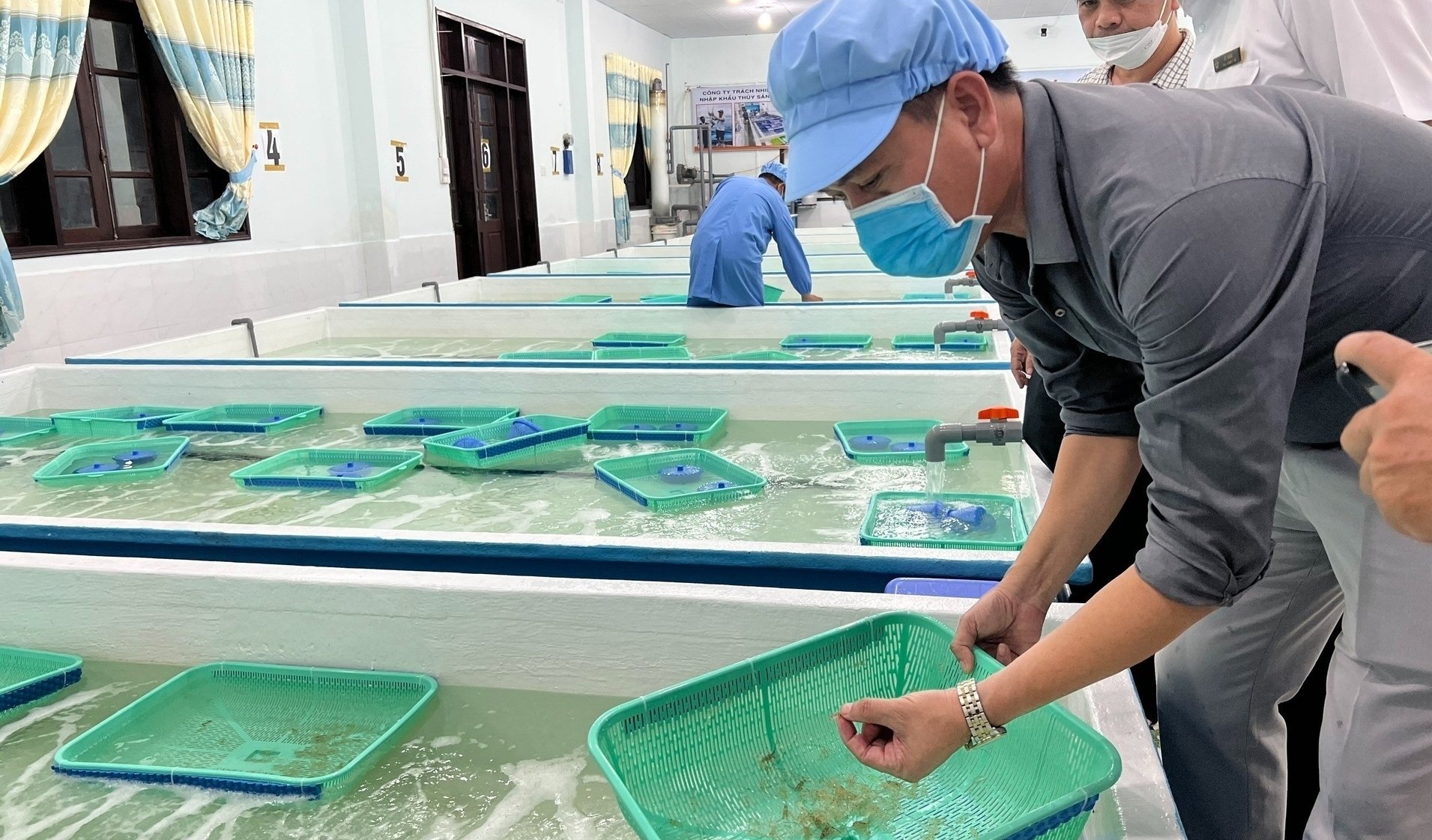
Quarantine area for importing lobster breeds for quarantine monitoring in Khanh Hoa province. Photo: KS.
Strengthen inspection, supervision, and control at airports, border gates, trails, border openings, rivers, and borders to detect and handle cases promptly illegally trading and transporting lobster breeds into Vietnam. If there is a chance of catching illegal shipments of lobster seeds, they must be dealt with immediately according to current regulations.
Specifically, from June 21-30, through supervision and quarantine of imported lobster breeds by the Region IV Animal Health Department (Department of Animal Health), it was discovered that there were five shipments of 3 companies importing nearly 1,4 million lobsters from Malaysia were infected with the virus that causes white spot disease.
To prevent disease-free shrimp from being imported into Vietnam, the Department of Animal Health of Region IV has reported and requested the Department of Animal Health to temporarily stop licensing the import of lobster seeds from the country with the contaminated export shipment white spot disease.
Also, issue a document to the competent authorities of countries with lobster breeds exported to Vietnam to request information on the quarantine process of exported lobster breeds and commit to ensuring batches of lobster breeds are exported to Vietnam. Lobster breeds imported into Vietnam are safe from disease factors.
At the same time, an official dispatch requests companies not to import lobster seeds from suppliers and partners whose shipments have tested positive for the virus that causes white spot disease. At the same time, continue to clean and disinfect the entire quarantine area (including tanks and related equipment) according to the instructed process.
Therefore, from July 6 until now, no organization or individual has submitted a quarantine declaration to import lobster breeds for quarantine monitoring in Khanh Hoa province with the Region IV Animal Health Department.
Translated by: Ha Phuc
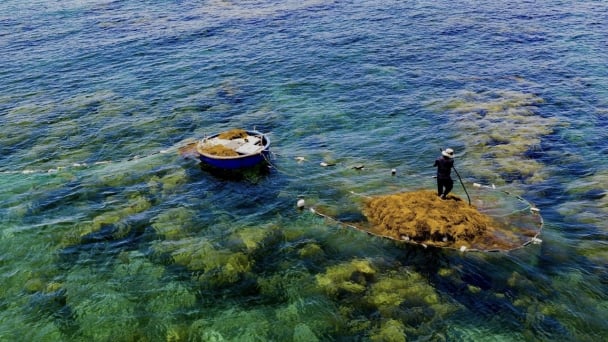
(VAN) With international assistance, the harvesting of sargassum seaweed in Quang Ngai has become increasingly regulated, thereby safeguarding marine life and ensuring the stability of coastal communities' livelihoods.
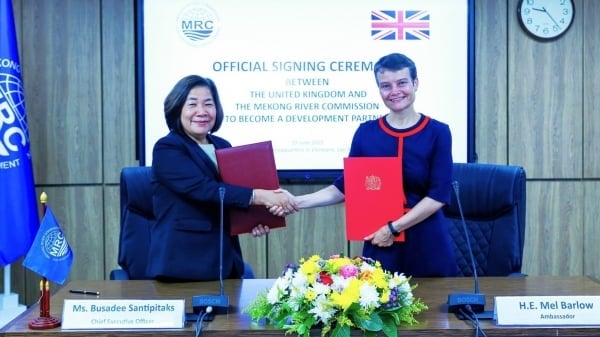
(VAN) On June 19, the United Kingdom officially became a Development Partner of the Mekong River Commission.

(VAN) Biodiversity is being threatened by traditional remedies made from wildlife. Traditional medicine and humans must change to live in harmony with nature.

(VAN) Agrifood investment and finance solutions for people and the planet.

(VAN) Microplastic contamination has become pervasive in seafood, posing unprecedented challenges for food safety and marine ecosystems.
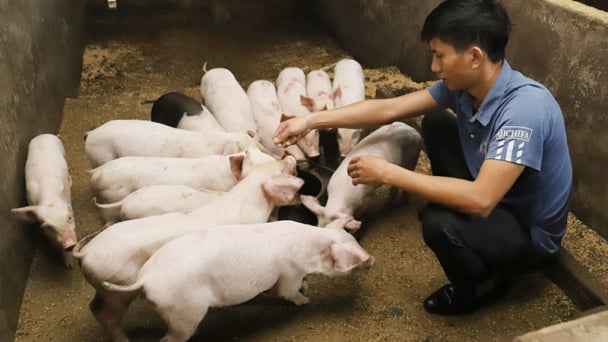
(VAN) Proactively using vaccines, combined with transport control and enhanced surveillance, is the only viable path toward biosecure and sustainable livestock production in Vietnam.

(VAN) Located in the southeast of Ho Chi Minh City, the Can Gio Mangrove Biosphere Reserve is considered the ‘green lung,’ a solid shield protecting the city.